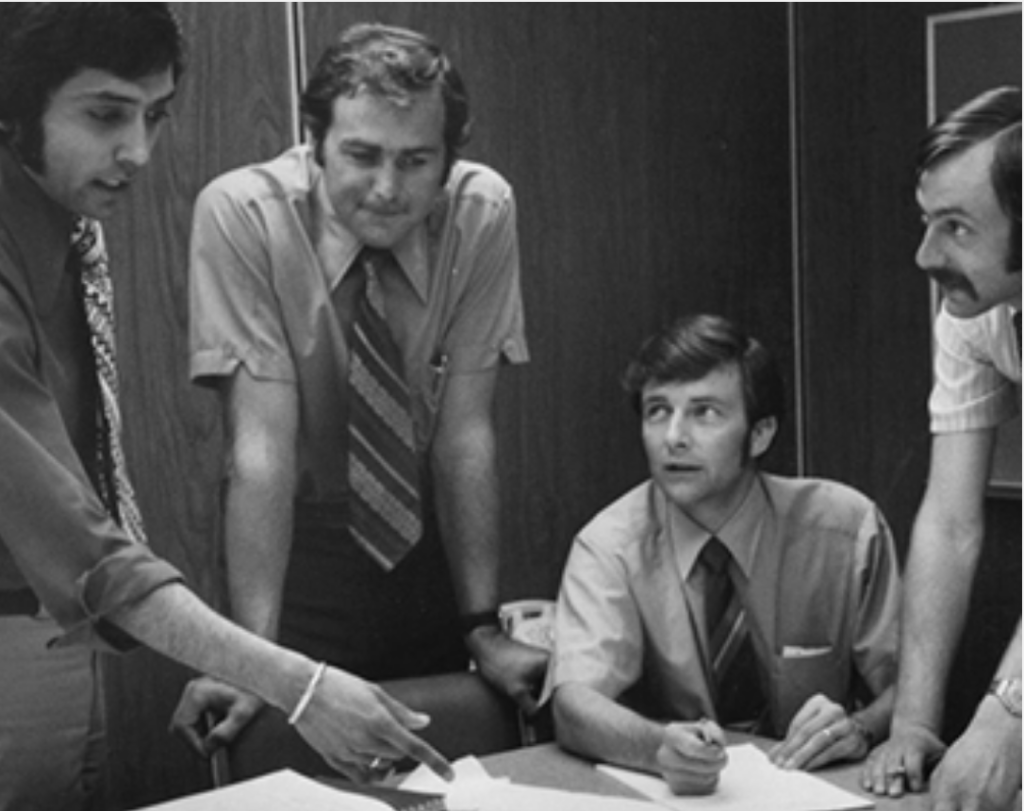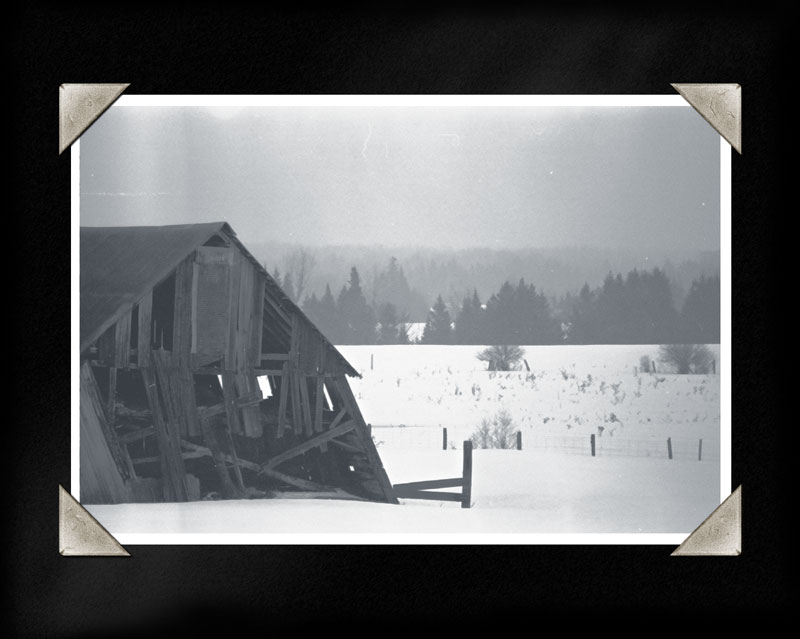
William Francis McGarry was born on April 2, 1927 in Dublin, Ireland. His early life was lifted from the pages of a Joyce novel. His father married an older woman, a starlet from the operettas no less. It’s tempting to believe that scandal was the one they whispered about in The Dead.
Bill and his younger brother Cecil attended Clongowes College, site of the early scenes of Portrait of the Artist as a Young Man.
But Cecil, not Bill, was the Stephen Dedalus. Or rather, his antithesis. Cecil’s blazing intellect led him to holiness, not heresy. He became a Jesuit, was appointed Provincial to Ireland, and given the Sisyphean task of implementing the Vatican II reforms.
A Good Soldier of Christ, Cecil did it without demur. It cost him immensely, and sent the Irish church into paroxysms. His labour complete, he spent over a decade in the Vatican, advising the Pope and guiding his order. He spent his last years in Kenya, living in relative seclusion, providing spiritual advice to many of East Africa’s Christian leaders.
A reformer and noted ecumenicist, he did much to modernise—and humanise—an appallingly archaic Church.
Compared to that, my father was a lout.
At least, he was in the eyes of Queeny and Bill, his imperious diva of a mom, and her quick-tongued husband who deployed his wit like a lash.
Where Cecil’s intellect and achievements blazed, young Bill merely did well. I suspect it took him decades to realise that in any other family, he would have been a standout. He was smart, athletic, good-looking and hard working. A standup guy with a pugilist’s persistence.
Bill and his sister Doreen were erased. Queeny loved Cecil, and Bill Sr loved Queeny, and that was all the love there was.
He met my mother at a house party while he was studying engineering at University College Dublin. She too had distant parents. Her father had skippered a small vessel during WWI and, against appalling odds, helped kill a German U boat. He was awarded the DSO for that, and was mentioned in despatches later in the war.
Whether it was the war or something else, he checked out. He landed a do-nothing job, and spent his time fishing and playing tennis. He dropped dead on the court one day, still in his 40s. He shared the fate of countless men who returned from the fight with no visible wounds.
(Mom’s life too was overshadowed by a famous Jesuit. Gerard Manley Hopkins was a neighbour and friend to her father and his young siblings during his years as a Classics professor at UCD.)
A martyr for his mother’s love fell for a fatherless child. The two completed each other.
They were married shortly after he graduated, and took ship for Canada the next day. They turned their backs to family and home, and never returned.
The young couple lived in Toronto briefly, then moved to Ottawa, looking for room to grow. Determined to be everything their respective parents weren’t, they wanted a dozen children.
They would have had them, too. But after her eighth pregnancy, Mom was told that the next one would kill her.
So we adopted instead.
Dad rose as people used to do, from lowly draughtsman to Vice President of an engineering firm.

He raised us in the pulsing heart of Canadian suburbanism, if such a thing existed. The house I was born in was built by Bill Teron, the developer who pretty much defined residential design in the ’60 and ‘70s. He also rescued much of Toronto’s waterfront from industrial hell.
I spent my early childhood years in another Teron brainchild, the show home for the brand-new community of Kanata, Ontario.
We were a model family, living in a model home. Proud citizens of Stepford.
But my father wasn’t done. Over a couple of decades of Thoreauvian endeavour, he carved a patch out of the bush, building what would become a sprawling living compound on a stony hilltop immodestly named Kincora.
That decision defined my childhood. It tied me irrevocably to the bush, inured me to the cold, left me bug-bitten, alone and adrift in an ocean of forest.
Not lost, though. I quickly learned how to find my way around. Leaving my sisters at home, I trudged along endless miles of logging road, spent entire days paddling our canoe across every square metre of three adjoining lakes.
My mom may have thought it was cute. It wasn’t. It was escape.
The endless days of solitude were punctuated each Friday by the sound of a car approaching. The place we lived was so remote you could hear a car coming literally from miles away.
My father had us hauling, digging, cutting and hammering pretty much from the moment we were able to hold a tool. His return from the city each Friday meant an end to aimlessness, and the start of a dawn to dusk parade of chores.
He’d pull up with the station wagon (of course!) full of sheetrock, timber, plaster, nails, food supplies, fuel for the chainsaw, joints, fixtures… it was uncanny how much stuff that car could hold.
From the moment of his arrival, the work began. All the materials had to go up the hill to the house. I still recall struggling to balance a sheet of gyprock taller than me, feeling it burrowing inexorably into my fingers, praying I didn’t crumble a corner on the stony trail.
I don’t know what bred my aversion to that work. I’ve never shied from labour.
The more I think about it, the more I realise my aversion was to him. I’m ashamed of that. I was then, and I am today.
The crushing inevitability of my dad’s arrival was always almost too much. More than once, I ran and hid in the bush, pretending for a while to be too far away to hear him bellow my name. Didn’t do me a lick of good, of course. I’d just get a solid smack or two, and still have to do the work I dreaded.
What he achieved over the years was a monument. He turned an un-insulated one-room plywood box into a sprawling year-round home, with outbuildings, a private lane, and an expansive deck down on the lakeside 150 metres distant.
I had a hand in much of it. I don’t feel proud of what we did, because it was his achievement. His in a way that excluded you. But I know—down to the nail, I know—the measure of the effort.
The man could not stop. He built our first set of living room furniture. He built our toy chest, and the building blocks inside. He built our bunk beds. He built our counters. He cut the wood for the fire. He built the bloody road to our door.
He built and built and built. And I hated him for it. His devotion to the idea of a perfect family home poured out of him. It raised timbers, hewed rocks and razed forests. He was a vessel of devotion, hollow inside.
By the time I was 12, I was spending every weekend with him, renovating a house in the city that would become our home. We ripped the guts out of the place, and floor by floor, made it into a spacious, luxurious residence.
I earned a dollar a day.
I earned that dollar.
He knew I was smart, and he fostered my learning. I was reading the classics at home at age six. He never pressed or prodded. He just gave me what my mind required.
I cannot count the nights I strained to see the type as dusk brimmed over the hill, and turned the page toward a west-facing window to catch the last light of the sun.
If I’m a writer today, it’s because of him.

I still don’t know what broke us as a family. I don’t know if any one thing did.
But I know it wasn’t him.
I could itemise the screaming fights, the blows, the misery overlaid with propriety and perfect manners, like ice above a drowning man. I could write, and re-write, and even on the fortieth draft, there would still not be a point where you could say, ‘There. Right there. That’s what he did.’
But every one of us emerged from that household gifted, driven, blazing fiercely with the fire of their own unique self-destruction. We were athletes, experts, artists—sometimes all three. All destined to fail.
We’ve all survived so far. Physically. Each of us cramped and broken in their own way, handing down the double gift of misery and devotion.
We can’t even win at tragedy.
Collectively we’re a cracked idol, a torn and smoke-stained testament lying in the dust behind the chancery.
We did everything right. We got everything wrong.
Bill never emerged from the shadow of his younger brother’s saintly genius. But he was merciless. He whipped his desire for mastery into shape, and made it serve him.
He left his engineering firm in the ‘80s at the top of his game. His work had taken him from Kenya to Iqaluit to the coal mines of Sydney, Nova Scotia. Twice he won North American awards for excellence in design. I found the certificates beside the furnace.
He was hired as an alternative energy advisor by the government of Canada. He knew what the world would need before most of us did. Then, almost to the day of his non-compete agreement lapsing, he took a golden handshake, left the public service, and set himself up as one of the premier insurance investigators in the business.
Like his father before him, he only became happy after the weight of raising a family was lifted. He was in his sixties when I first saw him really smile.
It was too late for me by then. Our hopeless tangle of devotion and revulsion was too deeply enmeshed. His battles may have been mostly behind him, but mine weren’t.
I was fighting depression and an inherited sense of anguished worthlessness that I still struggle to withstand.
One day in my mid-thirties, in the latter half of an extended car trip, driving back over the Rockies to home, I realised I was happy. At first I didn’t know what I was feeling. It had never happened to me before.
The most liberating moment of my life was the bitterest: I knew right then that if I wanted to be free, all I had to do was drive away.
That was over 20 years ago. I didn’t just keep driving. I crossed an ocean too.
I’ve found happiness here on the other side of the world.
And if I’ve found it, I learned that from him too.
I don’t build things for my children. That would be cruel. I give to them instead. I try to show them every day that they’re loved, that we may struggle but they will never want. That they matter. That they matter to me.
But I do make things. I can’t stop. I make and I make and I make. I can’t be a person unless I’m making something. Software, photographs, music, videos, stories—it doesn’t matter. As long as I don’t stop.
I try not to think too much about what keeps pouring out of me. I guess my old man didn’t either.
My dad died last night. It was cancer. He’d lived to 94. From what I’ve heard, he was ready to go.
I thought a lot over the last few years about returning, trying to reconcile. But honestly, I never felt I had to. I knew him pretty well by the time I left, and I like to think he knew me too.
I like to think he saw himself in me. The way I turned away, and forged a home from nothing.
And like him, I’m still building. Always building. Relentlessly, helplessly, hopelessly building.
Cecil’s endless grace and Bill’s endless drive are most of what made me whatever this is—this slack-jawed lump of flesh and sentiment, poking at a keyboard, frog-marching a procession of characters—walking shadows, signifying nothing—across a screen in a vain attempt to fill the space of this cavernous loss.
I had a father once. He was a terror and a perfect man.
I had a father. And now I never will.
The Village Explainer is a semi-regular newsletter containing analysis and insight focusing on under-reported aspects of Pacific societies, politics and economics.
